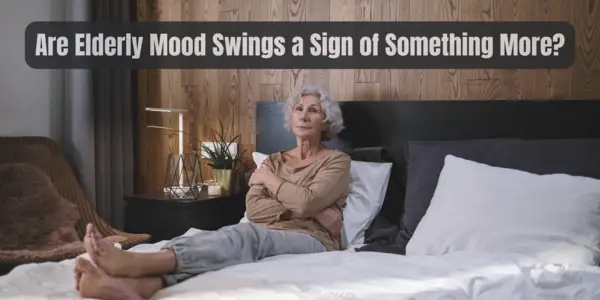
Are Elderly Mood Swings a Sign of Something More?
The elderly are known to experience mood swings, but some believe that these erratic changes in emotions may indicate something more serious. According to a study published in the journal Psychosomatic Medicine, older adults who experience more than two mood swings per month are more likely to have symptoms of depression and dementia. The study says that these swings may indicate greater emotional distress and vulnerability to mental health problems.
More research is required to confirm this connection. However, below is what the data suggests:
Data from Home Health Aide
Seniors are often known for their relaxed and easy-going nature, but a new study suggests mood swings may signal something more serious. The study, published in the journal Neurology, found that personality changes are common in seniors and often signal the onset of dementia or other serious health conditions.
The study looked at data from nearly 1,400 home health aides who provided care for seniors with dementia. The aides were asked to report any personality changes in the seniors, such as becoming more irritable or agitated or withdrawing from social activities.
The results showed that personality changes were common in seniors with dementia, with almost half of those studied experiencing at least one change. In many cases, these personality changes signaled the onset of more serious health conditions, including dementia, stroke, and depression.
What causes mood swings in the elderly?
A combination of factors may be responsible for mood swings, including changes in hormone levels, medications, and health problems. Mood swings can be caused by psychological factors such as loneliness, depression, or other health issues. The problem could be a side effect of drugs or other medications in some cases.
How do mood swings affect seniors?
Every person experiences different moods during their lifetime. These moods can be affected by several external and internal factors, such as stress, hormones, and diet. For seniors, mood swings can be especially disruptive to their daily lives. As people age, their bodies' ability to regulate moods diminishes. As a result, seniors may experience more severe mood swings than younger adults.
The causes of these mood swings are often difficult to identify and can vary from person to person. Some common triggers include loneliness, health problems, and changes in social roles. Mood swings can also lead to negative behaviors such as withdrawal from friends and family, increased anxiety and depression, and even suicidal thoughts. It is important for seniors and their loved ones to be aware of the signs and symptoms of mood swings and seek help if necessary.
When should you be concerned about mood swings in the elderly?
Although mood swings are common as people get older, there are times when they should be taken more seriously. If mood swings are accompanied by changes in eating or sleeping habits, withdrawal from friends and activities, or problems with concentration or focus, these could be signs of a more serious problem, such as depression. It is important to seek help if mood swings negatively impact daily life.
If you've known a senior citizen for years and they suddenly start swearing out of nowhere, don’t ignore such signs. While personality changes can be normal as people age, they could signify something more serious. And it’s best to detect them in the early stages to fix the situation as soon as possible.
Personality changes can result from many things, such as dementia or Alzheimer's disease. When these diseases progress, they can cause seniors to act out of character. It may involve swearing or other forms of verbal aggression in some cases.
Conclusion
If you're worried about your loved one's sudden change in behavior, don't hesitate to talk to their doctor. There may be an underlying medical condition causing their personality changes, which could be treated.